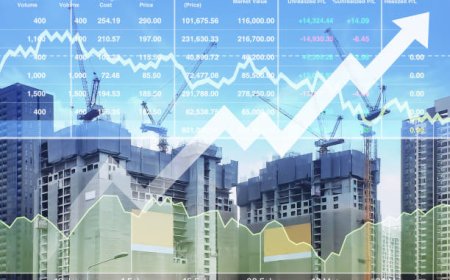Inflation Explained: How It Affects Your Daily Life
From adjusting your shopping list to rethinking how you save or invest, small changes can help you maintain your purchasing power even when prices are rising.

Inflation is a topic that shows up regularly in news headlines, economic discussions, and even everyday conversations. But what does it really mean, and more importantly, how does it impact your day-to-day life?
In this article, well break down inflation in clear terms, explore its causes, and look at how it influences everything from your grocery bill to your long-term savings. Whether you're new to economics or want a deeper understanding of the forces shaping your financial decisions, this guide is for you.
What Is Inflation?
Inflation refers to the general increase in the prices of goods and services over time. When inflation occurs, your money buys less than it did before.
Lets say a loaf of bread cost $2 last year. If inflation is at 5%, that same loaf might now cost $2.10. On the surface, that may not seem like a lot. But when price increases affect hundreds of items and services across your budget, the impact is significant.
Common Indicators of Inflation:
-
Consumer Price Index (CPI): Measures the average change in prices paid by consumers.
-
Producer Price Index (PPI): Tracks the cost of goods before they reach consumers.
-
Core Inflation: Excludes food and energy prices, which tend to fluctuate more than other goods.
Inflation is usually expressed as a percentage and is measured on a monthly or annual basis.
What Causes Inflation?
Inflation can occur due to a few main reasons. Here are some of the most common:
1. Demand-Pull Inflation
This happens when demand for products or services increases faster than supply. If people suddenly want more cars, and factories cant make them quickly enough, car prices may rise.
2. Cost-Push Inflation
This occurs when the cost of production increases, and businesses pass those costs on to consumers. For example:
-
A rise in fuel prices can make transportation more expensive.
-
A shortage of materials like microchips can raise the price of electronics.
3. Built-In Inflation
Also known as wage-price inflation, this results from a cycle where workers demand higher wages to keep up with rising living costs, and companies raise prices to cover increased labor costs.
How Inflation Impacts Your Daily Life
Inflation may seem like a distant economic concept, but it affects many aspects of your life. Heres how:
1. Groceries and Household Essentials
-
You might notice your grocery bill creeping higher even if you buy the same items.
-
Everyday goods like milk, eggs, and cereal become more expensive.
2. Housing and Rent
-
Rent tends to increase when inflation is high.
-
If you're paying a mortgage with a fixed interest rate, you may benefit since your payments stay the same while other prices rise.
3. Transportation and Gas
-
Fuel prices are often among the first to rise with inflation.
-
The cost of commuting or taking a trip can increase noticeably.
4. Savings and Investment Returns
-
Money kept in savings accounts may lose purchasing power if inflation outpaces interest earnings.
-
Investments in stocks, bonds, or real estate might be more appealing as people seek to protect their wealth.
5. Lifestyle Choices
Inflation can even influence what products you choose to buy. For example:
-
People may switch from premium items to budget brands.
-
Someone who enjoys vaping might opt for a compact vape pen instead of a more expensive model, or look for options with a high puff count vape to stretch their dollar further.
How to Manage the Impact of Inflation
While you cant stop inflation, you can take steps to reduce its effect on your finances. Heres how:
Budgeting Smartly
-
Track your expenses and prioritize essentials.
-
Use budgeting tools or apps to get a clearer picture of where your money goes.
Shopping Strategically
-
Look for discounts, buy in bulk, and compare prices.
-
Consider generic brands over name brands where quality is comparable.
Saving and Investing Wisely
-
Look into high-yield savings accounts or inflation-protected investments.
-
Diversify your investments to include assets that typically perform well during inflation (like real estate or commodities).
Negotiating and Upgrading Skills
-
Consider asking for a raise if your living costs have increased.
-
Invest in new skills or certifications that can make you more competitive in the job market.
Conclusion
Inflation is more than just an economic term; it directly impacts your wallet, your habits, and your long-term financial decisions. By understanding what causes inflation and how it plays out in daily life, youre better equipped to make informed choices.
From adjusting your shopping list to rethinking how you save or invest, small changes can help you maintain your purchasing power even when prices are rising.
Whether it's choosing a compact vape pen for better value or opting for a high puff count vape to save money, adapting to inflation is about being aware and intentional with your decisions.




























